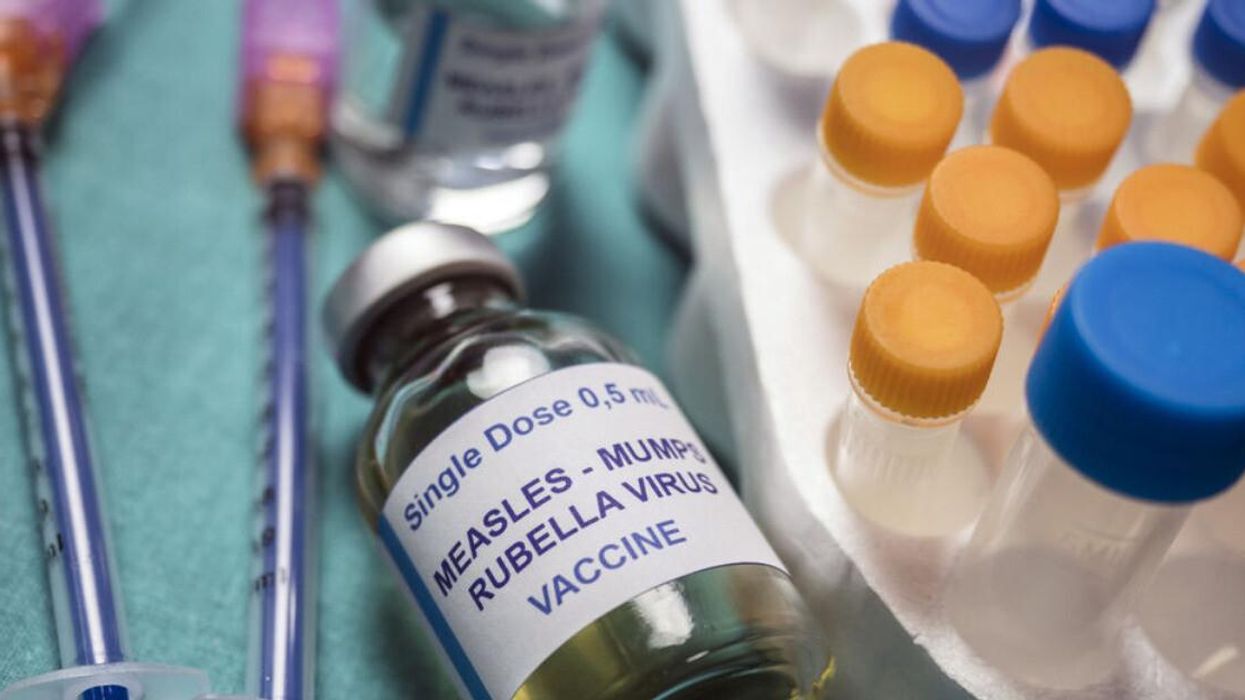The WHO Declared Measles An 'Imminent Global Threat' & Here's How You Can Protect Yourself
It's very contagious yet very preventible!

Different vials of triple viral vaccine of measles, rubella and mumps, known as MMR.
The World Health Organization has declared measles as an "imminent threat" to people around the world and it's in large part due to a decline in vaccinations during the COVID-19 pandemic.
In a joint news release with the U.S. Centers for Disease Control and Prevention (CDC) issued on Wednesday, the health authorities said it's "absolutely critical" to get immunization back on track.
“The paradox of the pandemic is that while vaccines against COVID-19 were developed in record time and deployed in the largest vaccination campaign in history, routine immunization programmes were badly disrupted, and millions of kids missed out on life-saving vaccinations against deadly diseases like measles,” said WHO Director-General Dr. Tedros Adhanom Ghebreyesus in the release.
"Getting immunization programmes back on track is absolutely critical."
Measles cases are already on the rise in the U.S.
Last week, 24 active cases of measles were reported in Columbus, Ohio, according to NBC News affiliate WCMH-TV. Health authorities confirmed all of those cases were in unvaccinated kids.
According to the WHO, a record high of nearly 40 million children missed a measles vaccine dose in 2021.
The release also notes that there were approximately 9 million measles cases around the globe in 2021 and 128,000 people died from the illness.
Here's what you need to know about measles:
Is measles a serious disease?
Measles is a respiratory disease that is highly contagious and can result in severe and even permanent complications like seizures, pneumonia and death, according to the U.S. National Foundation of Infectious Diseases.
The WHO says measles is "one of the most contagious human viruses but is almost entirely preventable through vaccination."
The CDC website highlights that measles can be serious in all age groups but some people are more likely to suffer from complications. Those particular groups include children under five years old, adults over the age of 20, pregnant women and people with compromised immune systems.
What are the symptoms of measles?
The health authority says the rash begins on the third to the seventh day of the illness and can last up to a week.
Fever, cough and a runny nose are also symptoms.
What does the measles look like?
Measles can appear as red spots as well as a blotchy red rash that starts on the face and spreads over the entire body.
You can see photos of what it looks like here.
How can you prevent measles?
You can protect yourself against the measles by ensuring you are vaccinated.
The CDC recommends students in college or university who have not been vaccinated against measles get two doses of the MMR (Measles, Mumps and Rubella) vaccine, with the second dose administered no earlier than 28 days after the first dose.
Adults who were born during or after 1957 and who don't have evidence of vaccination should get at least one dose of the MMR vaccine.
The CDC also advises young children to be vaccinated with the MMR vaccine starting with the first dose at 12 through 15 months of age and the second dose at 4 through 6 years of age or at least 28 days after the first dose.
If you plan on travelling to a country with a high measles risk, vaccination is also advised.
The CDC has a list of the top countries with measles outbreaks. India, Somalia and Yemen are the top three countries on the list.